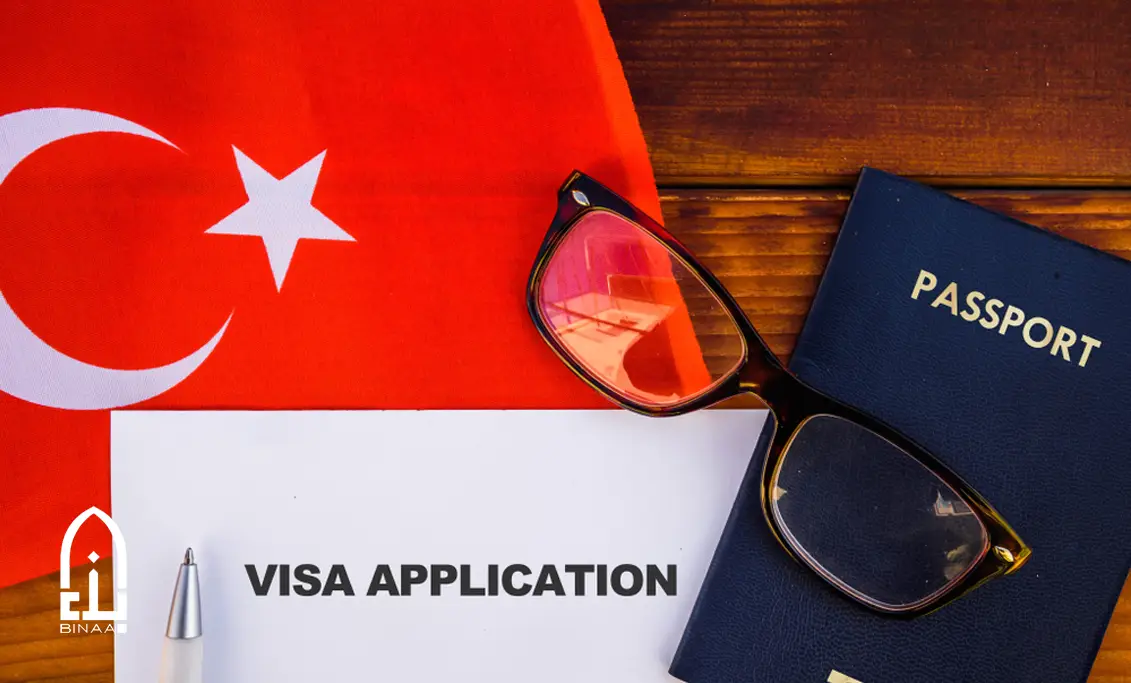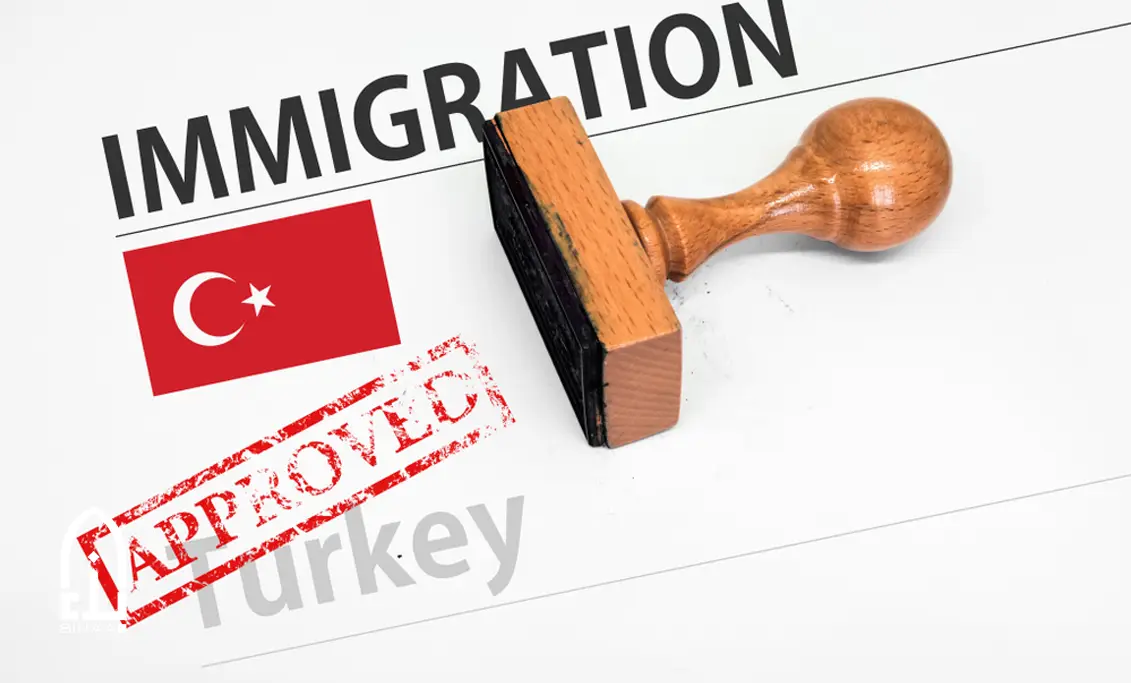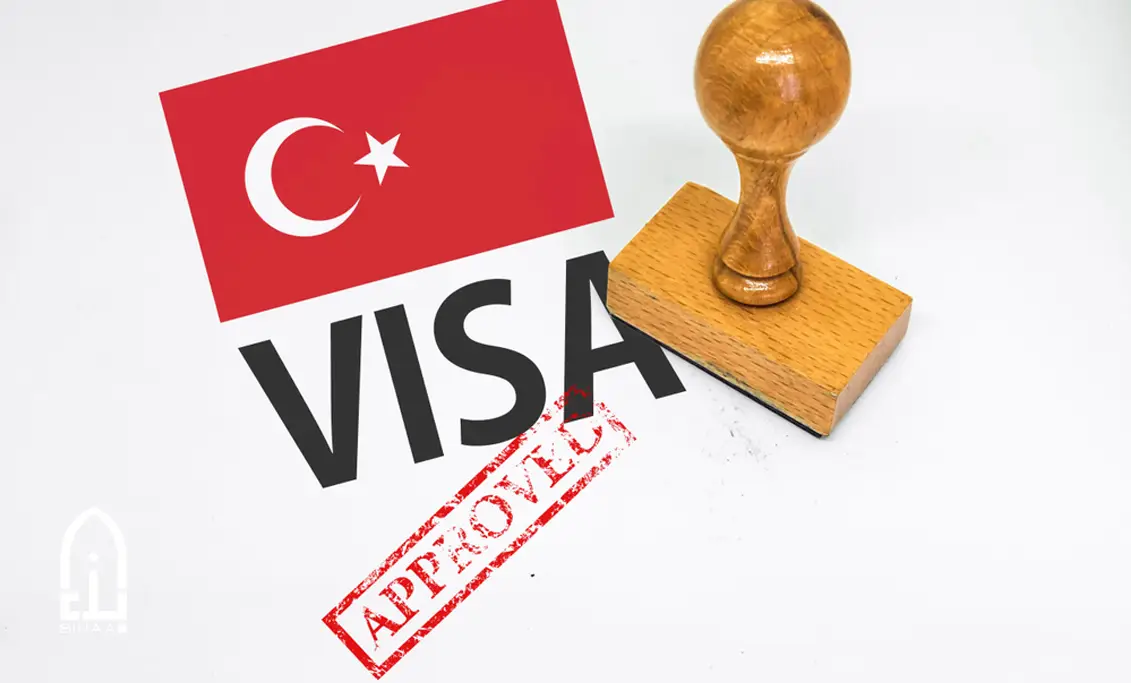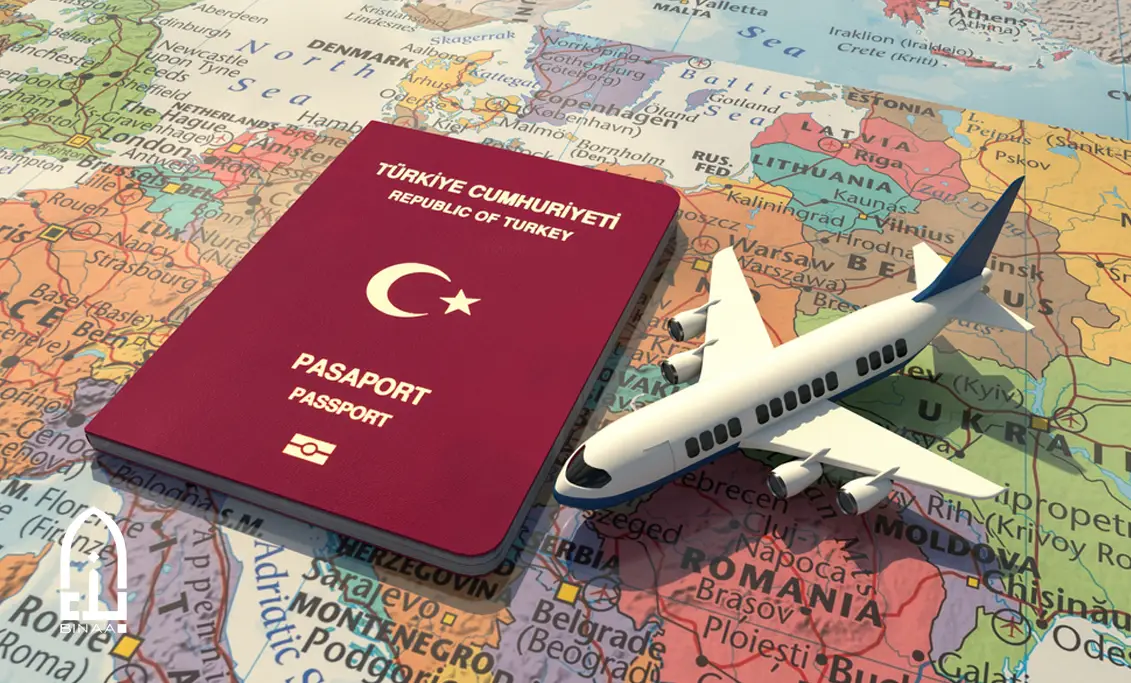Turkey is one of the world's most attractive destinations for tourism and investment, combining its unique geographical location, rich culture, and growing economy. To enter Turkey, most foreign visitors require a Turkish visa , which varies depending on the purpose of the visit—tourism, business, study, or long-term residence.
Types of Turkish visas

The Turkish government grants several types of visas to foreigners. The type of visa depends on the purpose and duration of the visit:
- Tourist Visa
It is intended for visitors who intend to travel for tourism or to visit friends and family, and is usually short-term (30–90 days).
- Business Visa
Granted to businessmen and investors who wish to attend meetings, exhibitions, or sign commercial contracts.
- Student Visa
It is specifically for students who have been accepted to a university or educational institution in Türkiye, and allows them to reside throughout their studies.
- Work Visa
It is granted to foreign employees or workers who have contracts with Turkish companies, and requires a work permit from the Ministry of Labor and Social Security.
- Medical Visa
For patients wishing to receive treatment in Turkish hospitals, especially in the field of medical tourism.
- Long-term residence visa
It is granted to foreigners who wish to stay for periods longer than the duration of the tourist visa, such as retirees or property owners.
How to apply for a Turkish visa
The process for applying for a Turkish visa varies depending on the applicant's nationality and the type of visa required. However, there are generally two main paths:
- e - Visa
- Available to more than 90 nationalities worldwide.
- It can be obtained through the official website www.evisa.gov.tr .
- The process takes only a few minutes and involves filling out the application and paying the fees electronically.
- The visa will be sent via email and can be printed or saved on your phone.
- Traditional Visa ( Sticker Visa )
- Applications are submitted through Turkish embassies or consulates in the applicant's country.
- Requires documents such as passport, personal photos, proof of hotel reservation or invitation, and flight ticket.
- In the case of a work or study visa, a university acceptance letter or official employment contract must be attached.
Turkish visa terms and requirements

To obtain a Turkish visa, the applicant must meet a set of conditions and submit basic documents that vary depending on the type of visa:
- Valid passport
It must be valid for at least 6 months from the date of entry into Türkiye, with blank visa pages.
- recent personal photos
With a white background and matching passport photo specifications.
- Financial proof
Provide proof of financial ability to cover travel and accommodation costs (such as a bank statement for the last 3 months).
- Hotel reservation or formal invitation
To clarify the place of residence in Türkiye during the visit period.
- Round-trip flight tickets
To prove your intention to leave the country after your visa expires.
- Health insurance
It includes the period of stay in Türkiye, and is mandatory for some types of visas such as long-stay.
- Additional documents
- For a work visa: an employment contract and a permit from the Ministry of Labor.
- For a study visa: Letter of acceptance from the university or educational institution.
- For a treatment visa: a medical report and a letter from an accredited hospital in Türkiye.
Turkish visa fees
Türkiye charges different fees for different types of visas, both electronic and traditional. The following is an approximate table:
Visa type | Approximate fees (US dollars) | comments |
e - Visa | 20-60 | Available to over 90 nationalities, payment is made online. |
Traditional tourist visa | 60-120 | It varies according to nationality, and the application is submitted through the embassy or consulate. |
Business visa | 80-150 | You need an invitation letter from a company or business entity in Türkiye. |
Work visa | 100-200 | In addition to the work permit fees paid to the Ministry of Labor. |
Student visa | 60-120 | It is necessary to submit an acceptance letter from a Turkish university. |
Medical visa | 60-100 | Requires a medical report and a letter from an accredited hospital. |
Long-term residence ( Residence Visa ) | 80-150 | Includes health insurance and residence card fees. |
📌 Note : These fees are approximate and vary depending on the applicant's country. Therefore, it is preferable to confirm the price through the embassy's official website or evisa.gov.tr .
Validity period of the Turkish visa

The validity of a Turkish visa varies depending on its type and the purpose of the visit. Here are the most important details:
- Tourist Visa
Typically valid for 30 to 90 days within a 180-day period from the date of issue.
Some nationalities can make multiple entries within this period.
- e - Visa
It is usually granted for a period of 90 days , and may be for single or multiple entries depending on the nationality.
- Business Visa
Its duration is similar to that of a tourist visa, but it is intended for business purposes and attending meetings and exhibitions.
- Work Visa
Typically valid for one year, renewable, provided the employment contract and insurance remain in place.
- Student Visa
Valid throughout the study period and renewed annually while the student continues at his educational institution.
- Long-term residence visa
It is granted for periods ranging from one to five years, depending on the reason for residence (property ownership, retirement, or family reasons).
Steps to extend or renew a Turkish visa
If you wish to remain in Turkey after your visa expires, you must apply for a residence permit ( İkamet İzni ) instead of renewing the visa itself, as direct visa extension is not available in most cases.
Basic steps :
- Submit the application electronically
- Log on to the official website of the Turkish Immigration Department e-ikamet.goc.gov.tr .
- Fill out the form and specify the type of accommodation required (tourist, student, work, family, etc.).
- Preparing the required documents
- Valid passport and a copy of it.
- Recent personal photos.
- A lease or title deed showing where you live.
- Health insurance covering the period of stay.
- Proof of income or bank statement in some cases.
- Make an appointment at the Immigration Department
- An appointment for review ( Rendevu ) will be set at the Immigration Department nearest to your place of residence.
- You must come with original documents and copies.
- Pay fees
- Residence permit fees vary depending on nationality and type of residence (usually ranging from $80-$150).
- Obtaining a residence card
- After approval, the residence card ( Ikamet Card ) will be sent to the residential address via mail.





